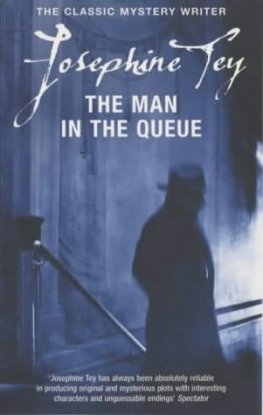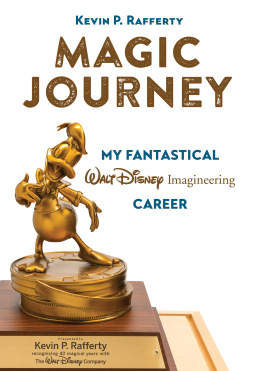Robert Batler - Rafferty and Josephine
Here you can read online Robert Batler - Rafferty and Josephine full text of the book (entire story) in english for free. Download pdf and epub, get meaning, cover and reviews about this ebook. genre: Prose. Description of the work, (preface) as well as reviews are available. Best literature library LitArk.com created for fans of good reading and offers a wide selection of genres:
Romance novel
Science fiction
Adventure
Detective
Science
History
Home and family
Prose
Art
Politics
Computer
Non-fiction
Religion
Business
Children
Humor
Choose a favorite category and find really read worthwhile books. Enjoy immersion in the world of imagination, feel the emotions of the characters or learn something new for yourself, make an fascinating discovery.

- Book:Rafferty and Josephine
- Author:
- Genre:
- Rating:3 / 5
- Favourites:Add to favourites
- Your mark:
- 60
- 1
- 2
- 3
- 4
- 5
Rafferty and Josephine: summary, description and annotation
We offer to read an annotation, description, summary or preface (depends on what the author of the book "Rafferty and Josephine" wrote himself). If you haven't found the necessary information about the book — write in the comments, we will try to find it.
Rafferty and Josephine — read online for free the complete book (whole text) full work
Below is the text of the book, divided by pages. System saving the place of the last page read, allows you to conveniently read the book "Rafferty and Josephine" online for free, without having to search again every time where you left off. Put a bookmark, and you can go to the page where you finished reading at any time.
Font size:
Interval:
Bookmark:
Robert Olen Butler
Rafferty and Josephine
Josephine Claiborne paused, her hands hanging over the keyboard, as her lovely vampire heroine, Marie Therese, first laid eyes on the handsome Union captain she would love and devour. Josephine was suddenly conscious of her own body. Knowing what her character must inevitably do to protect herself, to nourish herself, she had grown breathless. Her lips tingled. She bared her teeth. This stopped her. I'm getting a little too much into this, she thought, and she turned to look at her Writing Tree, a great, gnarled live oak just outside her window. Through the lift of its dark arms she could see a gaggle of tourists on St. Charles Avenue, their faces raised to her window, ropes of beads around their necks, and beside them, pointing through the tree at the great lady at work, was Delphine. Josephine was surprised that her daughter was conducting the literary tour herself today, though it no doubt had to do with shorthandedness during Mardi Gras. Delphine had written the script of the tour, and Josephine knew it by heart, so she could read her daughter's lips: "This is where Josephine Claiborne lives alone, weaving her dark tales of love and death from the well of her own solitude."
Josephine growled at this-at the sentiment and at Delphine's penchant for mixing metaphors-and she looked back to the computer and she tried to focus on her own words again. Then her hands dashed on. The Union captain took Marie Therese in his arms and they waltzed out the balcony doors and into the hot Louisiana night.
A chorus of voices arose from the street. "Bring your face close!" they cried. Josephine lifted her hands and turned back to the window. This was her cue. The phrase was her signature, slipped into every book. She wiggled her fingers at the benighted Union captain, wishing to go on without stopping, but she'd promised Delphine always to make an appearance when she heard these words, and so she rose and lifted the window and Delphine waved and Josephine waved back and the tourists cheered.
"We love you, Josephine!" one cried, and the others took it up.
"More than Anne Rice?" Josephine called, and she could sense Delphine's disapproval, though her smile stayed fixed on her face.
"Yes!" they replied as one.
Josephine was supposed to say something nice now. I love you, too. Or, You're all too wonderful. She was glad they loved her more than anyone, but she was pissed at this interruption and so she merely waved and cried, "Buy my books!"
"We will!"
The unflappable good nature of these literary tourists softened Josephine. She regretted her grumpiness. So she gave them a double dose of Delphine's script, softening her voice as much as she could and still be heard: "I love you, too! You're all too wonderful!"
Josephine drew back in. She hunched over the keyboard with the flounce of a concert pianist and she read the passage on the screen before her. "You're all too wonderful," Josephine whispered to the words she'd just written.
~
Meanwhile, down St. Charles and across Canal Street and in the midst of the welter of the long Mardi Gras weekend in the French Quarter, at a table for two next to a window on Chartres, the most desired lunchtime table in arguably one of the three best restaurants in all the Vieux Carr, if not all New Orleans, namely Rafferty's-though there was a bit more than a touch of resentment from some of the old guard that a restaurateur who made his mostly cultish reputation in a ramshackle, lunch-only seafood place in the Ninth Ward would dare to cross Canal and insinuate himself onto Chartres, even within sight of Jackson Square-at this table for two sat Rafferty himself, Rafferty McCue, with the curtains drawn beside him and his restaurant empty and its lacework iron door locked and a sign upon it reading "Gone to Mardi Gras, bring your appetites with your ashen foreheads on Wednesday." He watched shadows of the revelers dancing on the curtains like a Balinese puppet show and he wanted to be content where he was, alone at this table, though he was beginning to think Aspen would be a better place, with most of the other uptown New Orleanians who opted out of the krewes and the balls.
Max sat down opposite him with a rustling of paper.
A great shadow headdress had appeared on the curtain and stopped and quaked there, and it struck Rafferty as quite wonderfully feminine in its feathery roundness. For the past few years, as his widowerhood had become a habit, he'd grown intensely conscious of feminine things.
"Dad, you need to read this."
Rafferty turned to Max, who was waving a stack of contracts at him. Perhaps Rafferty was showing his mood on his face, because his son took one look and amended his order: "Or just sign."
Though Rafferty had only recently slipped past fifty, he was more interested these days in choosing the pompano or stirring the roux or shaking every hand at every table in the place than he was in the things his Harvard-M.B.A. son was only too happy to handle. "I'll sign," he said.
The contracts were before him, Max flipping the pages to the red-arrow tabs. Rafferty started signing. "We're ready to do more, right?"
"You're not getting cold feet." Max's voice had turned suddenly brittle.
Rafferty raised his eyes to his son.
"It's a great property," Max said. "The best double-gallery house on Magazine Street. It's big and it's ready for the Poland Avenue treatment."
Rafferty focused on the next dotted line.
"I don't want to make you do something you feel is a mistake," Max said.
Rafferty didn't think this was strictly true. He lifted his pen in mid-signature and looked up, not knowing whether to be irritated or playful. Either way, he'd say the same thing, so he said it: "Is that true?" As Rafferty expected, his son's eyes widened ever so slightly in panic.
"This isn't a mistake," Max said, a little breathless.
"But if I thought it was a mistake, you wouldn't want to make me do it?"
"If you thought it was a mistake but it wasn't?"
"Yes."
Rafferty could see Max trying to decide whether to lie or not.
Max chose a middle path. "Well," he said, "maybe I'd want to make you do it."
"But you wouldn't try."
Max looked abruptly away and down, as if a small boy had suddenly tugged at his sleeve. "OK, Dad," he said to the floor, and then he looked back at Rafferty. "You're right. No more bullshit. I want you to do this no matter what you think about it."
Father and son looked at each other calmly, no bullshit between them for the moment, and then Rafferty gave Max a slow, warm smile. "I trust you, Max," Rafferty said, and he meant it. Even while Max was at Harvard, he'd revived the Poland Avenue location, which was rooted in Rafferty's personal history and which almost faded away when he'd brought the family recipes to the Quarter. Max had done it with lots of neon and a Cajun band and a TV ad with Rafferty in a Saints uniform throwing a jumbo shrimp, like a sidelines pass, into Mike Ditka's mouth. Now the tourists actually came to the Ninth Ward to eat fried green tomatoes and oyster shooters and Redfish Rafferty elbow to elbow with Harry Connick Jr. or Anne Rice or Dr. John or even Edwin Edwards taking a lunch break from Harrah's or his latest trial. So if Max could be manipulative at times, a bit of a patronizing prick, that was probably part of being a top-tier M.B.A. "It's your baby," Rafferty said to his son.
Max reached out and briefly squeezed his father's forearm. A beat later he nodded at the idle pen.
~
Max had already prepared for the contract signing: news of the purchase was in the next morning's Times Picayune. Rafferty sat on his wraparound porch having coffee with chicory and he lowered his paper and humphed softly, mostly in appreciation of his son's initiative, though if Max had been there, Rafferty would have ragged him for his presumption. He lifted the paper again while a mile down St. Charles Avenue there was, prompted by the very same news story, a sudden sharp yawp on Josephine Claiborne's breakfast veranda. Delphine, who was the yawper, also jumped to her feet and Josephine sloshed her own coffee with chicory into its saucer. "What is it?" Josephine cried, fearing fire ants.
Font size:
Interval:
Bookmark:
Similar books «Rafferty and Josephine»
Look at similar books to Rafferty and Josephine. We have selected literature similar in name and meaning in the hope of providing readers with more options to find new, interesting, not yet read works.
Discussion, reviews of the book Rafferty and Josephine and just readers' own opinions. Leave your comments, write what you think about the work, its meaning or the main characters. Specify what exactly you liked and what you didn't like, and why you think so.








